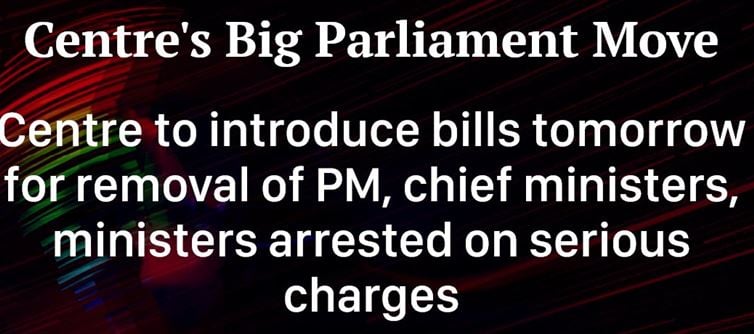
Coupled with the stringent provisions of the Prevention of Money Laundering Act (PMLA)—under which bail is notoriously difficult to obtain—the amendment could give sweeping powers to central agencies. A Chief minister, for instance, could be arrested on money laundering charges, kept in custody for a month without bail, and automatically removed from office. This effectively allows the central government to destabilize opposition-led states without going through the electoral process. Observers point out that this aligns with the apprehensions long expressed by leaders like mani shankar Iyer, who warned of Modi’s centralizing tendencies and authoritarian use of institutions.
The implications for federalism and democracy are grave. On the one hand, elected leaders of the people, such as Chief Ministers, could be arrested and removed from power through agency action, bypassing the electorate’s mandate. On the other hand, powerful bureaucrats such as election Commissioners and others remain insulated from such provisions, despite their crucial role in safeguarding democracy. Critics argue that this creates an imbalance where people’s representatives can be toppled while unelected officials remain untouchable. In practice, it could pave the way for the ruling party to weaken opposition governments by arresting their leaders, breaking their parties, and installing friendly regimes—a pattern that has already been seen in several states but now risks being legitimized through constitutional backing.




 click and follow Indiaherald WhatsApp channel
click and follow Indiaherald WhatsApp channel